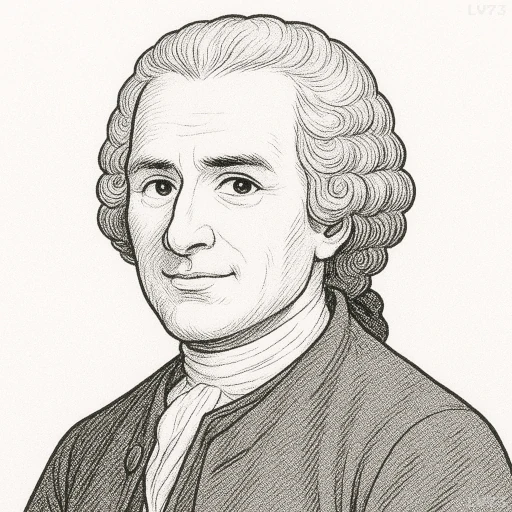“We are born weak, we need strength; helpless, we need aid; foolish, we need reason. All that we lack at birth, all that we need when we come to man’s estate, is the gift of education.”

- June 28, 1712 – July 2, 1778
- Born in Geneva
- Philosopher, political philosopher, writer, composer
table of contents
Quote
“We are born weak, we need strength; helpless, we need aid; foolish, we need reason. All that we lack at birth, all that we need when we come to man’s estate, is the gift of education.”
Explanation
In this quote, Jean-Jacques Rousseau emphasizes the crucial role that education plays in human development. He highlights the inherent weakness, helplessness, and ignorance of humans at birth, suggesting that it is through education that we acquire the strength, help, and reason necessary to navigate life. Rousseau is advocating for a form of education that not only imparts knowledge but also fosters the development of moral and intellectual capacities, enabling individuals to thrive as adults and fulfill their potential. This view aligns with his broader philosophy on human nature and the importance of nurturing individuals from a young age in ways that respect their natural goodness.
Historically, Rousseau’s ideas on education were revolutionary. In Emile, or On Education, he argued against the rigid, often oppressive educational methods of his time, which he felt stifled children’s natural curiosity and growth. Rousseau believed that education should be aligned with the child’s developmental stages, nurturing their innate abilities and encouraging independence and critical thinking. He rejected the traditional focus on memorization and punishment, advocating instead for an education that would cultivate moral virtues and teach children to live in harmony with their natural instincts.
In modern times, Rousseau’s quote is especially relevant in discussions of child development and educational reform. Today, the value of holistic education—which goes beyond mere academic learning to include emotional and social growth—has gained widespread recognition. Rousseau’s perspective on education reminds us that the foundation of a well-rounded individual rests on the nurturing of both intellectual and emotional capacities. The quote also speaks to ongoing debates about the role of education in society, especially when it comes to creating equitable opportunities for all individuals to develop their potential, regardless of their starting point in life.
Would you like to share your impressions or related stories about this quote in the comments section?

